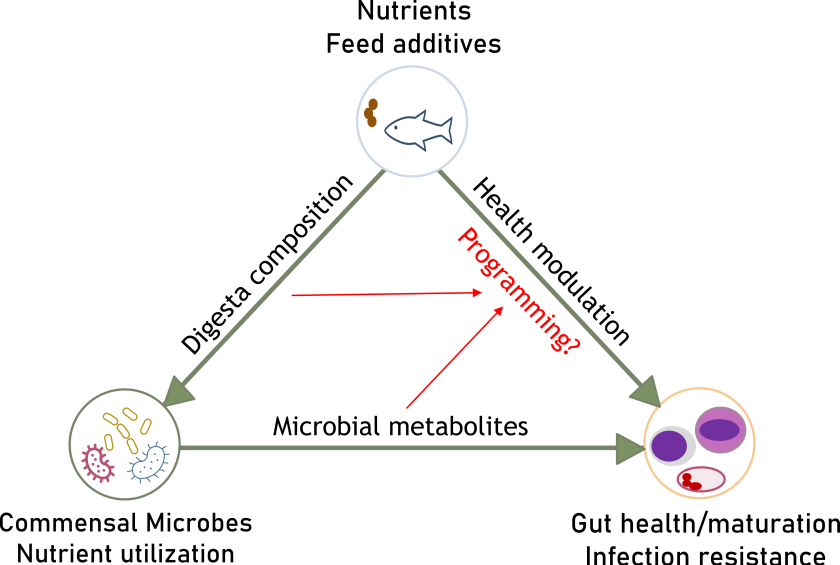
Project
Nutritional epigenetic programming of gut mucosal health in first-feeding fish
The growing world population, combined with over-exploited fisheries, indicates that by the year 2030 aquaculture should provide 70% of the fish protein required for human consumption. The potential of early life programming of fish health, by diet-induced changes, could be an important step towards better health management in aquaculture.
The aim of Reprogram is to epigenetically program fish health during the critical early life window to maintain broad immune competence. Evidence suggests that the effect of certain nutrients on the intestinal microbiota can induce epigenetic reprogramming of innate immune cells with long-term positive effects on health. In the current project, early epigenetic nutritional programming by dietary additives such as butyrate and beta-glucans is evaluated in first-feeding stages of Nile tilapia, exploring the potential of dietary additives to enhance gut mucosal health in a fish species important to global aquaculture. The project integrates research methodology relevant to several disciplines including fish immunology, nutrition and microbiology to assess dietary effects on the gut microbiome. We are using Oxford Nanopore Technology to characterize the fish microbiome, along with transcriptomic approaches and morphological observations to assess the impact of dietary additive during early life in the long-term gut mucosal health and disease protection in Nile tilapia.
